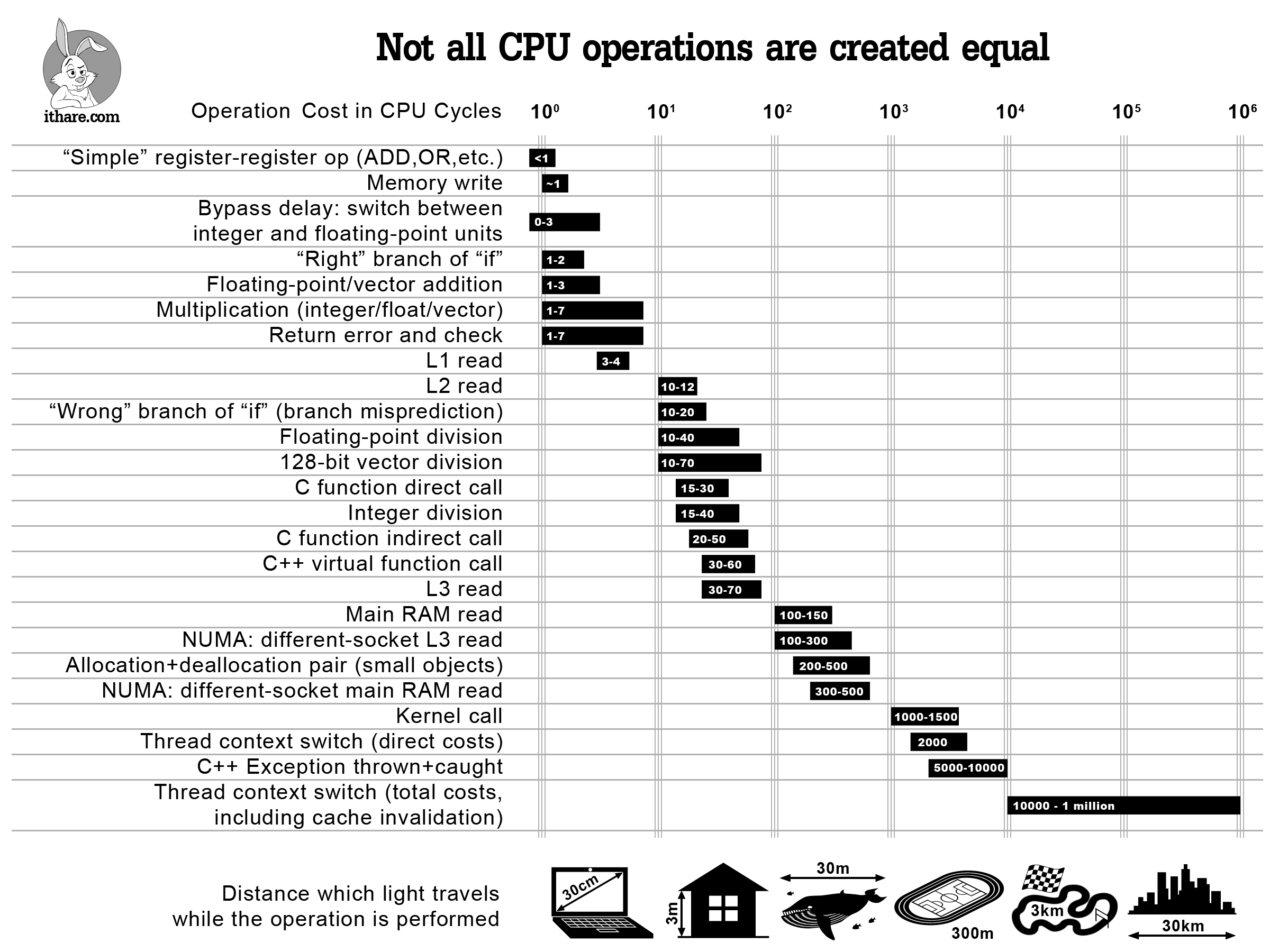Infographics: Operation Costs in CPU Clock Cycles--“No Bugs” Hare
 A very interesting article about the cost of our basic operations.
A very interesting article about the cost of our basic operations.
Infographics: Operation Costs in CPU Clock Cycles
by “No Bugs” Hare
From the article:
Whenever we need to optimise the code, we should profile it, plain and simple. However, sometimes it makes sense just to know ballpark numbers for relative costs of some popular operations, so you won’t do grossly inefficient things from the very beginning (and hopefully won’t need to profile the program later �� )...
